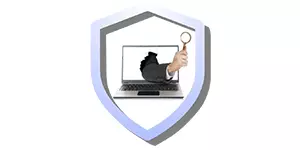VPNs are a popular way to keep your online activity private, but can people still see what you’re looking at? After reading, you can explore how VPNs work and whether or not they offer complete privacy. We’ll also take a look at some of the best VPNs available on the market right now. Stay safe and secure when browsing the web with one of these trusted services!
Can the police see what I’m looking at with a VPN?
The short answer is no, the police cannot see what you’re looking at with a VPN. However, there are a few exceptions to this rule.
If you’re using a VPN in a country with strict internet censorship laws, the government may be able to see what websites you’re accessing. If you’re using a VPN to commit illegal activities, the police may be able to track your online activity.
VPNs provide a high level of privacy and security. If you’re concerned about the government or police monitoring your online activity, we recommend using a reputable VPN service.
Can my ISP see what I do with a VPN?
No, your ISP cannot see what you do with a VPN. When you connect to a VPN, all of your internet traffic is routed through an encrypted tunnel. This means that your ISP can only see that you’re connected to a VPN server and cannot see what websites you’re visiting or what data you’re sending.
Who can see what I look up on a VPN?
In most cases, only the person who is using the VPN can see what they’re looking at. The VPN encrypts your internet traffic, making it unreadable to anyone who may be snooping on your connection.
There are a few limitations to this guideline. If you’re using a VPN in a country with strict internet filtering rules, the government may be able to see what websites you’re visiting. If you’re using a VPN to break the law, the cops may be able to track your online activity.
Can a VPN block parental control?
Yes, a VPN can block parental control. Parental controls are typically used to restrict children’s access to inappropriate websites. However, these controls can also be used to block access to any website that the parents deem unsuitable.
If you’re using a VPN to bypass parental controls, we recommend connecting to a server in a country where the website you’re trying to access is not blocked. For example, if you’re trying to access a website that’s blocked in the United States, you can connect to a server in Canada or another country where the website is not blocked.
Can parents see it if I bypass parental control by VPN?
There is no surefire answer to this question since it depends on a number of factors, including the specific VPN service you’re using and your parents’ level of tech-savvy. However, it is generally speaking difficult for parents to track their child’s internet activity if they are using a VPN. This is because a VPN encrypts all internet traffic, making it virtually impossible to decipher. Therefore, we would recommend using a VPN if you’re looking to bypass parental control measures.
Can my employer see what I do with a VPN?
No. However, there are a few exceptions. If you’re using a VPN to access websites or services that are blocked by your employer, they may be able to see that you’re using a VPN. If your employer has implemented an internet usage policy and you’re violating it, they may be able to track your online activity.
Can I get caught on the Tor browser using a VPN?
The short answer is “no.” While it is technically possible for someone to track your activity on the Tor network back to you, it is highly unlikely. This is because the Tor network is designed to be highly anonymous and secure, and there are many layers of protection that make it very difficult to trace activity on the network back to a specific user.
Must Read: Is Tor Can Be an Alternative to VPN
However, it is important to note that using a VPN in conjunction with the Tor browser can potentially increase your chances of being tracked. This is because your traffic will first go through the VPN server before entering the Tor network, which means that your ISP or anyone else monitoring your traffic will be able to see that you are connecting to a VPN server. While this does not necessarily mean that they will be able to track your activity on the Tor network, it is still a potential risk.
If you are concerned about being tracked while using the Tor browser, we recommend that you use a VPN that offers end-to-end encryption. This means that your traffic will be encrypted from your computer to the VPN server, and then from the VPN server to the Tor network. This will make it much more difficult for anyone to track your activity.
There are a few different ways that you can use a VPN with the Tor browser. One option is to install the Tor Browser Bundle, which comes with a pre-configured version of the Tor browser and the Privoxy proxy. This is a good option if you want to be able to use the Tor browser without having to worry about configuring a VPN.
Another option is to use the Tor Browser with a standalone VPN client. This is a more complicated setup, but it can provide a higher level of security.
Ultimately, whether or not you use a VPN with the Tor browser is up to you. If you are concerned about being tracked, we recommend using a VPN that offers end-to-end encryption. However, if you are not as concerned about being tracked, then using the Tor browser without a VPN is perfectly fine.
